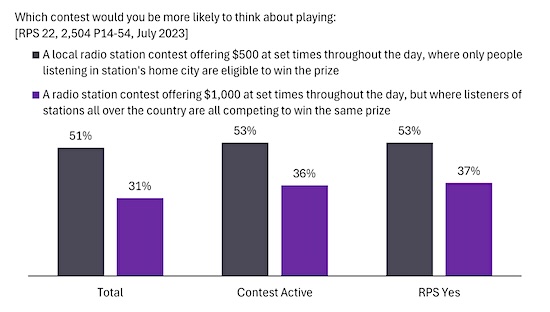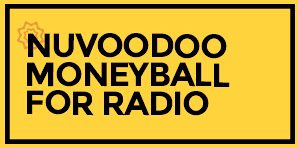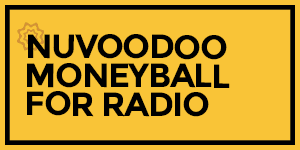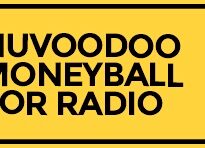Moneyball: Last-Minute Contest Guidelines
• If you’re considering a contest to impact the last month of the spring book, you’re likely working with a smaller budget than you may have in the past. To help get the biggest contest bang for the smallest outlay, we’re highlighting data on contesting from our last several NuVoodoo Ratings Prospects studies.
Interest in $500 contest prizes has been elevated since our study last summer with about two thirds of listeners saying a $500 prize could get them to play. A larger $1000 prize gets more listeners interested, but the smaller amount allows you to offer prizes more often.




In data captured in our July 2023 study, more listeners say they’d prefer to participate in a local station contest than a national contest, even if the prize is smaller in the local station contest. Of course, this assumes that stations running national contests are making it clear that’s what they’re doing. Listeners may hear the details during the announcements disclosing contest rules, but it’s hardly given heavy promotion — and they could be forgiven for not appreciating the details.




In past studies when we’ve asked follow-up questions, we learned that those who felt good about group contesting believed the prizes were bigger and/or they had more chances to win. If you’re running a local-only contest, you should be giving heavy promotion to that fact. You should showcase the voices of winners in promos talking about where they live and/or work. Don’t shy away from listeners with a distinctive local accent. These factors make your contest more relatable, more legitimate, and increase the perception that other listeners can win if they participate in the contest by listening more and/or more often – and that’s why you’re running the contest in the first place.
We’re showing off programming and marketing micro-tactics from NuVoodoo Ratings Prospects Study 23 in a second season of Moneyball for Radio. You can find new videos every Thursday at nuvoodoo.com/webinars. We’re focusing on the radio version of “the butterfly effect” — the incremental things you can do that can add up to the additional tenth of a rating point that is the goal for stations in rated markets.





